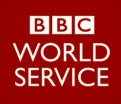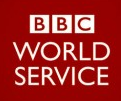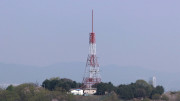 The BBC World Service has decided not to launch a service aimed at North Korea, concluding any programming aimed at the country would face an uncertain audience and not be cost-effective.
The BBC World Service has decided not to launch a service aimed at North Korea, concluding any programming aimed at the country would face an uncertain audience and not be cost-effective.
The decision was relayed in a letter from British Foreign Secretary William Hague to the U.K. Parliament’s Foreign Affairs Committee. The BBC World Service is currently funded by a grant from the Hague’s Foreign and Commonwealth Office, although that’s about to change.
“The World Service has re-examined the case for broadcasts into North Korea, considering both the feasibility of such broadcasts and how effective they would be in reaching North Korean audiences,” the letter said.
“On the basis of this work, the World Service board recently reached the conclusion that it is not currently possible for the World Service to offer a meaningful, effective and cost-effective service.”
Hague’s letter was sent earlier in January, just a couple of weeks after several U.K. politicians backed a campaign to get a BBC Korean service on the air.
The campaign was launched by a group called “The European Alliance for Human Rights in North Korea (EAHRNK)” and argues that North Koreans would benefit from independent sources of news and radio is the best way of doing that.
Hague’s letter detailed some of the reasoning behind the BBC board’s decision.
Here’s an examination of the claims:
Shortwave Radio
- “A shortwave radio service would reach an insignificant percentage of the population due to a combination of low numbers of shortwave-capable radios, ignorance of different wavebands and DPRK signal jamming.”
This is an interesting finding, especially given the current presence of the roughly ten radio stations that use shortwave to reach North Korea.
To be sure, there’s no sure way to know exactly how many people are listening to the programs, although surveys of defectors – the only audience research possible because it takes place outside of the country – indicate at least some North Koreans are listening.
A 2010 survey carried out by BBG, the umbrella organization that runs Voice of America and Radio Free Asia, found 27 percent of 250 defectors surveyed reported listening to foreign radio. That includes both South Korean stations broadcasting on mediumwave (AM) and shortwave broadcasts.
In its 2012 report “A Quiet Opening,” InterMedia, the company that conducts audience surveys for BBG, said that DVDs had been the most effective vehicle for foreign media in North Korea, with 48 percent of respondents reporting their use.
“However, radio occupies a unique space in the North Korean media environment, as the only real-time, direct source of sensitive outside news available nationwide. From the perspective of those attempting to deliver outside information, the relative speed and ease of disseminating content into North Korea from abroad, via radio, gives broadcasting a distinct distribution advantage over other media types that must be smuggled into the country.”
The BBC does have a point about jamming.
North Korea aggressively jams foreign radio broadcasts by broadcasting noise on the same frequency so that it mixes with the foreign program and makes listening difficult.
However, it’s worth noting that the DPRK only possesses a finite number of transmitters capable of jamming, so more stations on the air mean a higher chance that any one station will get through. That still doesn’t guarantee a clean signal for the BBC.
Regulatory hurdles
- “South Korean regulations currently prevent foreign broadcasters from broadcasting FM or mediumwave radio from South Korea.”
South Korea, like Japan and China, are very strictly regulated media markets. To-date, it has proved impossible for any foreign or private broadcasters to construct transmitters in the country for the purpose of reaching the North Korean audience.
Current shortwave programming comes from a variety of locations, including the Mariana Islands and Uzbekistan.
The closest any broadcaster has come is BBG, which has managed to put some of its programs on mediumwave by leasing time on the powerful 1,118kHz transmitter of religious station Far East Broadcasting Co. (FEBC) in Seoul.
Open Radio for North Korea has also managed to broadcast from within South Korea by taking time on a local MBC affiliated station in Chuncheon, near the border. It broadcasts on 774kHz and 92.3 FM for an hour from 4am local time.
Television
- It would be impossible to offer a TV service that would not be blocked by the government.
While the InterMedia report noted the viewing of foreign TV broadcasts inside the DPRK, this was reception of signals from domestic South Korean and Chinese stations that spilled over the border. Any targeting of North Korea with TV broadcasts would almost certainly result in jamming that would be much more effective than on shortwave.
Internet and Smartphones
- Mobile or Internet services would achieve very low or insignificant impact given access is strictly limited to political elites and both North Korea networks are effectively cut off from the rest of the world.
The BBC is right here. There’s no way to get content to North Korean smartphones or computer screens using the current networks. Any attempt, even by elites, to access BBC sites would almost certainly be detected.
Hague’s letter also noted that BBC Worldwide, the commercial arm of the BBC that sells its programming overseas, is engaged with trying to get its programming aired on Korean Central Television. That would likely be non-factual content such as dramas, children’s TV shows and documentaries.
“In the long term, this is a good way to improve understanding about the outside world within such a closed society,” Hague concluded.



